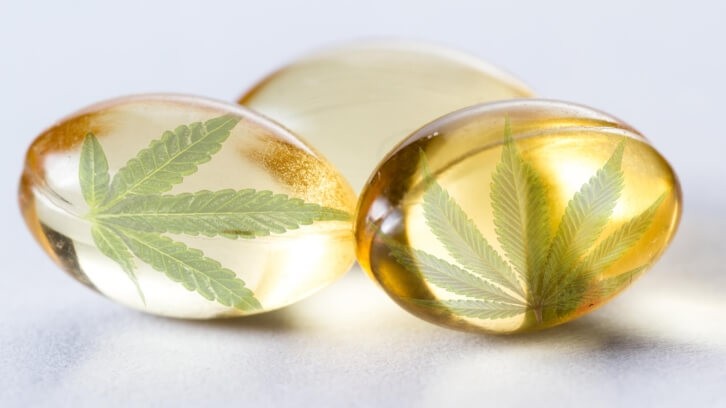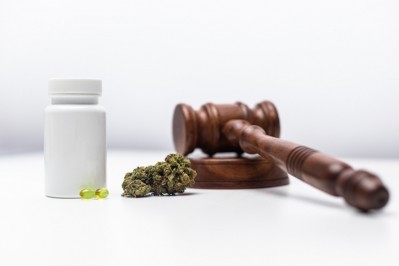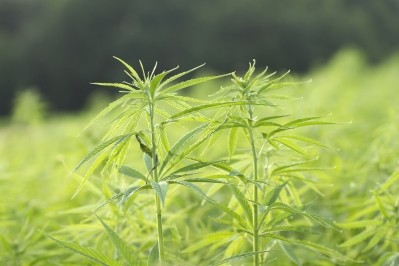New tox study validates safe upper dose for cbdMD’s Broad Spectrum CBD blend

The new paper, by Dr Mark Tallon and Dr Rob Child from the UK-based Legal Products Group, details three separate OECD (Organisation for Economic Co-operation and Development) experiments on rodents performed by a Eurofins lab that investigated: 1) prenatal development; 2) a 14-day dose-range finding study; and 3) a 90-day subchronic safety study with a recovery period.
The study relates specifically to cbdMD’s proprietary Broad Spectrum CBD blend, and Drs Tallon and Child stated: “It should be noted other extracts will have their own toxicological profile that may not match this extract, and as such, ingredient-specific toxicological trials should be performed to determine safe doses.”
“The NOAEL [no observable adverse effect level] for the oral administration of this CBD isolate was 460.5 mg/kg bw/d for male Sprague-Dawley rats and 230.25 mg/kg bw/d for female Sprague-Dawley rats when delivered in a MCT oil vehicle,” they wrote.
“Using an uncertainty factor 100 (10 (between species) x 10 (within species)) this indicates sub-chronic intake of the CBD isolate in this trial is safe for reference adult humans (70 kg) at a dose of 161 mg per day.”
cbdMD: “We will continue to tirelessly advocate for regulatory clarity for hemp-derived products”
Commenting on the findings, Dr. Sibyl Swift, cbdMD's Chief Science Officer and VP of Regulatory Affairs, said: "In light of the recent regulatory discussions and Congressional interest in our industry, we felt that it was important to publish our data so that it serves as a resource for the industry, our consumers, and regulators worldwide. The publication has already been referenced in a safety review and formed the basis for the review paper's arguments for a safe upper dose limit, and will be shared with Congressional staff as a follow-up to the Company's recent response to the bicameral Request for Information.
"We know that our products are safe and effective because we invested in the science to support them being so; We will continue to tirelessly advocate for regulatory clarity for hemp-derived products to ensure that our customers have access to botanically-derived solutions for their everyday health and wellness needs."
The company noted that the data presented in the new paper was referenced in its Citizen Petition, which was submitted in April of 2022 to the FDA following a meeting with the Agency, and will be resubmitted as part of the public docket to “support the Company's lobbying efforts in Washington D.C. to obtain sensible CBD regulations”.
In addition, the data from this study was used in support of successful regulatory submissions to both the UK Food Standards Agency and the EU Food Safety Authority. The company stated that it was one of only two international publications demonstrating the safe level of cannabidiol consumption for humans.
Other scientific data
The release of the paper follows on the heels of a recent review, also published in Regulatory Toxicology and Pharmacology, commissioned by Canopy Growth Corporation and Charlotte’s Web.
As reported by NutraIngredients-USA, that review concluded that upper CBD intake levels ranging from 70 mg to 160 mg per day for dietary supplements are acceptable and do not harm the liver. The 100-160 mg range was determined for healthy adults, and does not apply to those trying to conceive, or currently pregnant or lactating, according to the study, at which point the upper Intake Limit (UL) drops to 70 mg per day.
The review applied publicly available safety data to develop recommendations for oral consumption of hemp-derived CBD.
In response to the review, a spokesperson for the FDA told NutraIngredients-USA that the Agency appreciates reviews of this kind for bringing needed attention to CBD.
“However, in general, the FDA does not comment on specific studies, but evaluates them as part of the body of evidence to further our understanding about a particular issue and assist in our mission to protect public health,” said the spokesperson.
Source: Regulatory Toxicology and Pharmacology
Published online ahead of print, doi: 10.1016/j.yrtph.2023.105496
“Subchronic oral toxicity assessment of a cannabis extract”
Authors: M.J. Tallon, R. Child















